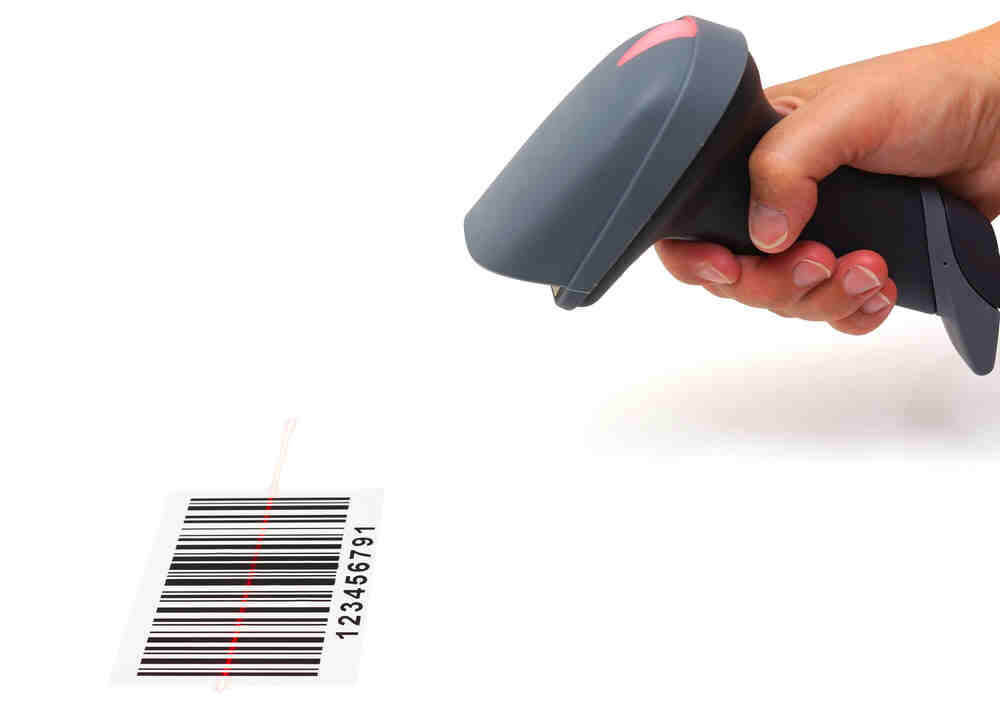Picking the Right Barcode Scanner for Your Service Requirements
Selecting the appropriate barcode scanner for your business requires a nuanced understanding of your particular operational needs and environmental problems. Variables such as scanner kind, speed, and compatibility with existing systems play an essential role in establishing the right option.
Comprehending Barcode Scanner Kind
When it involves selecting a barcode scanner, understanding the numerous types readily available is vital for meeting particular service demands. Barcode scanners can be categorized into numerous types, each created for different applications and settings.
Handheld scanners are the most typical, using transportability and simplicity of usage, making them suitable for retail and supply administration. They normally connect using USB or Bluetooth, supplying versatility in procedure. Fixed-mount scanners, on the other hand, are developed for high-volume scanning applications, usually found in production line or checkout counters. These scanners are installed in a stationary position, permitting for rapid scanning of several products one by one.
One more type is the mobile computer system, which integrates scanning capacities with calculating power. These tools are perfect for area operations or storage facility administration, allowing information collection and real-time inventory monitoring. Additionally, there are commercial scanners that are constructed to hold up against rough settings, such as severe temperature levels or exposure to dust and dampness.

Key Attributes to Consider
What important functions should organizations focus on when choosing a barcode scanner? Firstly, scanning rate is important, as faster scanners boost operational effectiveness, specifically in high-volume environments. The scanner's capacity to review various barcode formats is additionally vital; guarantee it supports prominent kinds like QR codes, UPC, and Code 128 to accommodate varied supply items.
Resilience is an additional crucial attribute, especially for services in rugged settings. Try to find versions that are developed to endure decreases, dirt, and moisture. In addition, consider the connectivity options offered; whether you like USB, Bluetooth, or Wi-Fi, the right connection can improve integration with existing systems.

Assessing Your Organization Environment
To successfully choose a barcode scanner, companies need to take stock of their particular functional atmosphere. This analysis includes evaluating the physical layout of the work space, the nature of the items being scanned, and resource the regular problems under which scanning occurs. A retail environment may call for handheld scanners that can quickly process purchases at the check out, while a stockroom setup could profit from ruggedized scanners developed to endure harsher problems.
In addition, think about the quantity of scanning called for. High-throughput atmospheres may require advanced scanning modern technologies, such as fixed-position scanners or smart phones that can operate successfully in busy circumstances. The assimilation abilities with existing supply monitoring systems likewise play an important role; make sure the selected scanner can perfectly get in touch with software application platforms in usage.
A scanner that meets present needs might not suffice as company expands. By extensively assessing these elements, companies can pick a barcode scanner that not just fulfills instant requirements but additionally supports long-term functional effectiveness and adaptability. barcodes scanners.
Budgeting for Your Scanner
Having actually analyzed the functional atmosphere and recognized the particular requirements for a barcode scanner, the following step entails careful budgeting to make sure a smart monetary investment. Developing a budget plan starts with establishing the general expenses connected with the scanner, including initial purchase cost, functional expenses, and potential upkeep charges.
When choosing a barcode scanner, think about the variety of readily available options, from handheld devices to fixed-position scanners, as prices can differ dramatically. It is vital to stabilize cost with functionality; selecting an extra budget-friendly model may bring about raised operational inefficiencies if it does not meet your organization requirements.
In enhancement to the equipment, consider prices associated with software program, training, and prospective upgrades. While it may be alluring to decrease ahead of time expenditure, buying a quality scanner that aligns with your operational demands can yield long-term savings through improved effectiveness and decreased downtime.
Finally, think about the total cost of possession, which incorporates the scanner's life-span and prospective resale value. By diligently preparing your budget, you can guarantee that your investment in a barcode scanner will enhance your operational performance and monetary performance.
Integration With Existing Systems
Incorporating a barcode scanner with your existing systems is important for maximizing its efficiency and guaranteeing seamless operations. barcodes scanners. A well-integrated scanner boosts operations performance, minimizes errors, and accelerates information handling. When choosing a barcode scanner, consider compatibility with your current software program and equipment infrastructure, including your inventory monitoring systems, point-of-sale (POS) systems, and business resource preparation (ERP) options
Assess whether the scanner uses standard methods such as USB, Bluetooth, or Wi-Fi, which can assist in easy integration. In addition, evaluate whether the scanner's software supplies APIs or SDKs that permit customization and assimilation with proprietary systems. This is particularly crucial for companies with one-of-a-kind functional requirements.
As your organization grows, your systems should be able to fit extra scanners and manage raised information quantities without significant reconfiguration. Ultimately, investing in a barcode scanner that perfectly integrates with your existing systems will produce lasting advantages, enhancing precision, efficiency, and overall efficiency within your procedures.

Conclusion
In verdict, choosing an appropriate barcode scanner requires a comprehensive examination of his explanation various variables, right here including scanner kinds, important attributes, and the particular organization environment. The appropriate barcode scanner serves as a crucial tool in simplifying processes and assisting in effective stock monitoring.